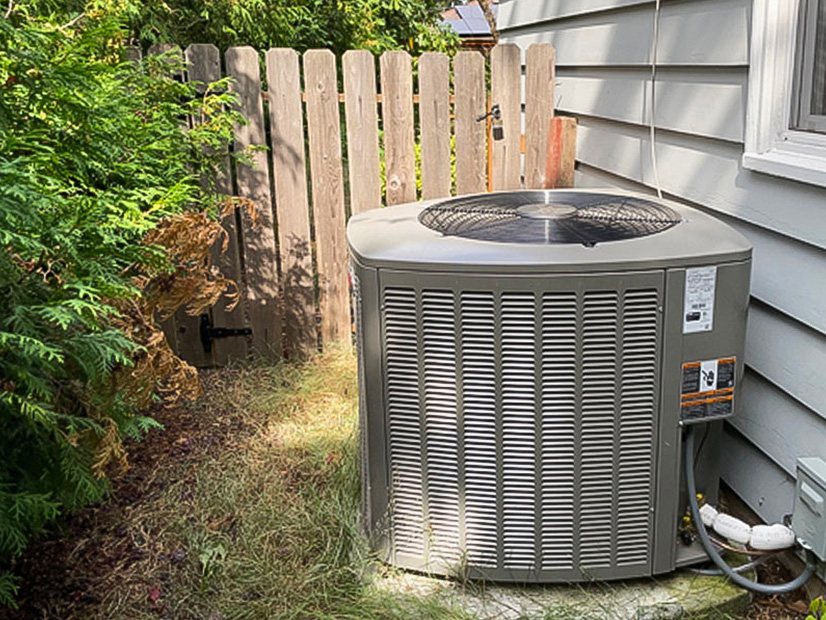The California Air Resources Board on Wednesday took one of its first steps toward a potential statewide ban on sales of new natural gas-powered space and water heaters for residential and commercial buildings.
CARB hosted a public workshop to explain the rationale for zero-emission appliance standards and to gather feedback on the process for developing a regulation. The agency hasn’t yet released a proposed appliance regulation, and it could be months or years before it does so.
Wednesday’s session was the first in a series of public workshops expected to continue into 2024. Under a proposed timeline, CARB would consider a draft regulation in 2025, with a compliance date expected in 2030.
“Zero-emission appliance standards provide an opportunity for substantial emission reduction to help meet climate and air quality targets,” CARB Executive Officer Steven Cliff said during the workshop.
Cliff noted that a move toward zero-emission appliances is a strategy in the climate change scoping plan that CARB adopted last year. And the agency’s 2022 State Implementation Plan, which tells the U.S. EPA how California plans to meet air quality standards, sets a 2025 target date for the board to consider zero-emission standards for space and water heaters. (See Calif. Moves to Ban Natural Gas-powered Heaters.)
As now envisioned, the regulation wouldn’t require replacement of gas heaters in existing buildings. But all new space and water heaters sold in California, either for new construction or to replace appliances in existing buildings, would need to be zero-emission.
CARB staff said they’ll also explore zero-emission requirements for other uses such as cooking and clothes drying.
Cliff said that CARB is working with other agencies and will monitor policies that would support zero-emission appliance standards. Those might include incentive programs, electric rate design, grid readiness and workforce development.
Impact on Seniors, Rural Areas
More than 160 people attended the virtual workshop. Some asked whether the impact on fixed-income seniors would be considered.
Dana Waters, CARB’s staff lead for developing zero-emission appliance standards, said the agency is working “to really understand all the potential adverse impacts of our potential regulation on many vulnerable groups, including fixed-income seniors,” as well as ways to minimize those impacts.
Others wanted to know whether the regulation would cover rural areas that use propane appliances. Waters said that’s something CARB will evaluate.
Another issue is whether manufacturers will be able to meet demand for zero-emission appliances, which are expected to be largely electric heat pump devices, when the regulation takes effect. Waters said CARB welcomes comments from manufacturers on potential supply chain problems.
One workshop participant asked about the impact of the 9th U.S. Circuit Court of Appeals ruling on the city of Berkeley’s effective ban on natural gas in new buildings. (See Impact of Berkeley Gas Ruling Debated.) Waters said CARB is watching the case, in which Berkeley might request a rehearing.
“CARB’s regulation, which would apply to emissions, not natural gas infrastructure, is still in the concept stage,” Waters said.
Air District Weighs In
More than 70 cities and counties in California have requirements for new construction to be all-electric, although many also include exceptions, such as for commercial cooking.
The Bay Area Air Quality Management District in March adopted requirements for new space and water heaters to emit zero nitrogen oxides (NOx). In theory, natural gas appliances could meet the zero-NOx standard, but no such appliances are currently available, the air district said.
The appliance standards will be phased in from 2027 to 2031, starting with water heaters in 2027.
The South Coast Air Quality Management District is also committed to zero-NOx appliance standards, Cliff said.
Greg Nudd, deputy air pollution control officer for the Bay Area air district, said during the workshop that public health is the focus of the district’s appliance regulations. Exposure to nitrogen oxides may cause coughing, wheezing, asthma and greater susceptibility to respiratory infections, according to the air district.
Nudd said the district received hundreds of comments on its appliance rules. Concerns included high upfront costs, long waits for utility upgrades and interconnections, electric reliability and labor availability.
The air district has convened a work group to help address the challenges, he said.
“California’s showing the rest of the world that this can be done, and it can be done in an equitable way,” Nudd said.




